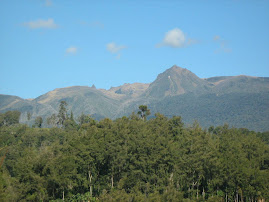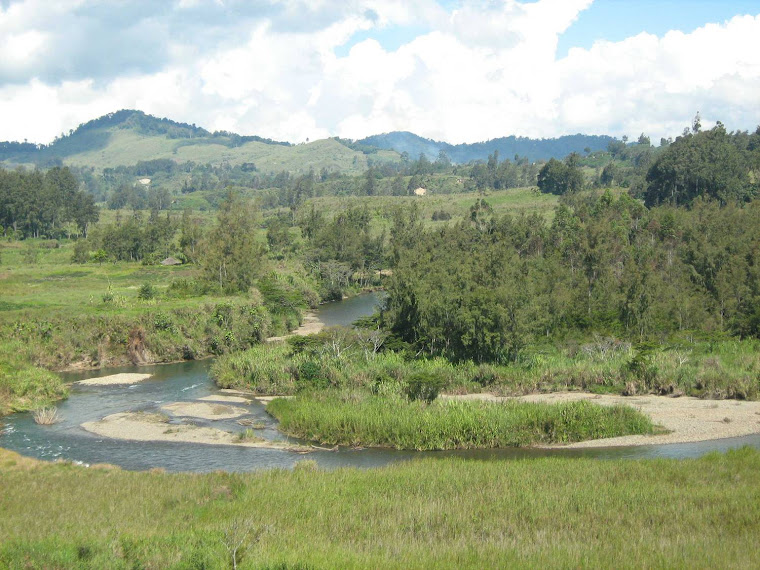
Caption: Future potential diplomats during their intensive foreign service training at Government House June this year. Foreign Service training is a prerequisite for future posting to PNG overseas missions. The future of PNG’s foreign policy formulation and implementation lies in their hands. Picture courtesy by John Bria
PNG’s diplomacy after 33 years and what lies ahead
By Mathew Yakai in Changchun, China
SINCE independence, Papua New Guinea stood up as a nation, going through some economic, political and social tribulations.
On Tuesday 16th September, PNG will celebrate its 33rd Independence Anniversary.
When PNG gained her statehood on 16th September 1975, she was a new born into the international community, and that was during the Cold War period, an aggressive ideological war between the capitalist USA and Communist former USSR.
When thinking of how PNG survived this Cold War period, as opposed to “hot wars”, PNG admires its bureaucrats and career diplomats who sat down and drew PNG’s foreign policies that faced the challenges of yesteryears and future.
Realism, one of International Relations theories which depict “power politics” that associates with militarism, as opposed to institutionalism or idealism which believes in norms and values was dominant at that time.
Because PNG was a new born, her foreign policy experts were genuine to draw foreign policy, “friends to all and enemy to none”. Today, this policy remains.
In International Relations, states are the main actors. So PNG as a sovereign state, is the main actor, thus has an important role not only towards its people but the region and the world.
As such, formulations of PNG’s foreign policies are very important, taking into account the current international trend.
But when such policies are drafted, domestic polity also have some influence.
Also, policies are drafted by experts, who are indeed human beings, strongly influenced by their past experiences and the current surroundings.
So at the end, what kind of foreign policies does PNG have? Is it strongly influenced by international events, or influenced by domestic policies or even by the experts’ past experiences? I will leave these questions to people who draft and review PNG’s foreign policies.
One area the experts can learn from China’s experience is that Beijing gives priority to its domestic polity when drawing its foreign policies. The reason is that China was once humiliated by the Westerners so they are careful with outside influence.
On that note, does Canberra, London, New Zealand and other traditional partners influence PNG’s foreign policies? To some extent yes and it’s inevitable given the globalization trend, but Waigani must minimize outside influences.
PNG’s foreign policies experts must draw fine line, weighing out issues to make sure the sovereignty of PNG is not compromised, and at the same time maintain a cordial bilateral relationship with the traditional partners and as much, extend its relationship, depending very much on the availability of capitals.
Power of a nation state is depicted in its military might, economy and natural resources.
PNG has only the natural resources, but not the other two. USA has all three, and that’s why she can unilaterally attack Iraq and Afghanistan, leave aside its WWII and Cold War victory.
But the theory that military power, economic power and abundant natural resources are the foundation for a powerful country is proven wrong.
Good example is the U.S.’s defeat in Vietnam War and the current war in Iraq. If U.S. is powerful then why not complete its mission in Iraq sooner and leave?
U.S. is now watching North Korea and Iran which she termed as “axis of evil”. But the experience in Iraq has taught Washington a new lesson, “institutionalism” and “cooperation” is the way forward, rather then ‘unilateral” approach.
U.S. is no doubt world’s hegemony because it has the world’s modern military with world’s largest national economy.
Its gross domestic product (GDP) was estimated as $13.8 trillion in 2007 and maintains a high level of output per person, $46,000 in 2007, according to Wikipedia.
U.S. Armed Forces are the overall unified military forces of the U.S. and was formed during the Continental Congress and was permanently established after WWII.
As of June 30, 2008, about 1,427,546 people are on active duty in the military with an additional 1,458,400 people in the seven reserve components.
Much of U.S. military capability is involved in logistics and transportation, which enable rapid buildup of forces as needed.
The Air Force maintains a large fleet of C-5 Galaxy, C-17 Globemaster, and C-130 Hercules transportation aircraft with a substantial fleet of aerial refueling tankers.
The Marine Corps maintains Marine Expeditionary Units at sea with the Navy's Atlantic and Pacific Fleets.
The Navy's 11 active aircraft carriers, combined with a military doctrine of power projection, enable a flexible response to potential threats.
U.S is abundant with natural resources such as coal, copper, lead, molybdenum, phosphates, uranium, bauxite, gold, iron, mercury, nickel, potash, silver, tungsten, zinc, petroleum, natural gas and timber.
U.S also has multinational companies overseas which extract natural resources overseas for local consumption.
Compared that to China (PRC), The People's Liberation Army (PLA) is the unified military organization of all land, sea, and air forces.
PLA is one of the world's largest military forces, with approximately 7,000,000 members and has the world's largest (active) standing army, with approximately 2.25 million members.
U.S. is next with 1,426,026 active service personal followed by India, Russia and North Korea. PNG has only 3,100 active service personal according to Wikipedia.
In terms of economy, PRC has the second largest economy in the world with a GDP of over $6.9 trillion (2007) when measured on a purchasing (PPP) basis.
In November 2007, it became the third largest in the world after the U.S. and Japan with a nominal GDP of US$3.42 trillion (2007) when measured in exchange-rate terms.
Since free market reforms in 1978 China's GDP has grown an average 9.9 percent a year.
China's per capita income has grown at an average annual rate of more than 8% over the last three decades, drastically reducing poverty, but this rapid growth has been accompanied by rising income inequalities.
The country's per capita income is classified as low by world standards, at about $2,000, and $7,800 in 2006, according to the International Monetary Fund.
China has a large and varied stock of natural resources. The variety of different landforms, soil conditions, and climate patterns offers many different kinds of opportunities for agricultural production.
A tremendous range of food and industrial crops can be grown, and this makes it possible for China to keep imports to a minimum.
In PNG, its Defence Force (PNGDF) is the unified armed forces, originate as an Australian colony before independence in 1975, the Royal Pacific Islands Regiment.
The then Pacific Islands Regiment, disbanded after World War II, was reformed again in 1951. At first, it consisted mostly of 1 PIR at Taurama Barracks Port Moresby.
In 1965, however, a second battalion, 2 PIR, was formed at Wewak. PNGDF land forces also include the Engineer Battalion in Igam Barracks at Lae, and as of 2000, a signal squadron, an explosive ordnance disposal unit, and a preventive medicine platoon.
PNG is richly endowed with natural resources, but exploitation has been hampered by rugged terrain, the high cost of developing infrastructure, serious law and order problems and the system of land title, which makes identifying the owners of land for the purpose of negotiating appropriate agreements problematic.
Agriculture provides a subsistence livelihood for 85% of the population.
Mineral deposits, including oil, copper, and gold, account for 72% of export earnings.
PNG’s GDP remains at $11.94 billion (2007 est.). It has abundant natural resources that have the potential to heal its economy if corruption is eradicated.
It may be bizarre to compare PNG to USA, world’s hegemony and the rising regional power China.
But the logic is this. China can have the largest military and the second largest economy immediately after USA but all of these are powered by natural resources.
USA’s main attack on Iraq is for oil, one of the important natural resources that is reaping ordinary PNG family when the fuel price is skyrocketing.
This had ripple effects on other commodities instigating high prices, consequently, pulling Unitech students out of their class to demand the government to intervene.
So what does PNG have that makes the country having a leverage over countries like U.S., Australia, China, New Zealand, United Kingdom and other trading partners? It’s the natural resources in abundance.
So our foreign policy experts at the International Relations Divisions, especially foreign policy review team at the Foreign Affairs department need to take into consideration that PNG has abundant natural resources to bargain for a better diplomatic and economic benefit.
The world of “realism” has gone, and today major players in world politics put emphasis on “institutionalism”, and economic cooperation, by promoting interdependence. PNG has great advantages now.
Recently, the bilateral and economic relationship between China and PNG has been further strengthened with the extension of the loan repayment of about K30 million by another 10 years.
And China has also committed another grant of about K4 million to PNG.
Thirty-three years after independence, PNG is now at the cross-road of international interdependence and prudent diplomacy.
PNG has done extremely well with embassies (Kundus) in Jakarta, Manila, Belgium, Beijing, Tokyo, Seoul, Washington D.C., New York, high commissions in Honiara, Suva, Canberra, Kuala Lumpar, London, New Delhi, Wellington, consulates in Jayapura and Brisbane and honorary consulates in Hong Kong, Shanghai, Singapore and Bangkok.
In diplomacy, Kundus have done well in the past 33 years. Today, our foreign policies must be based on international trend, with domestic interest always taking precedence.
PNG is not a failed state, or a weak state. Her foreign policies spoke well in the past 33 years. However, PNG now faces a big challenge given the globalization era.
But if PNG can go through the Cold War period then scenario today is simply about mutual understanding, cooperation and interdependence through established regimes as most economies are complementary.
The world today does not need hegemony, given U.S.’s slow decline, but cooperation and interdependence amongst states, only through established regimes.
PNG stands to benefit. Happy 33rd Anniversary, my beloved PNG.
Note: Asia-Pacific Perspective: China + looks at Chinese society, culture, economy, governance and China's role within the Asia Pacific region and the world over. It mainly focuses on how PNG can learn from China's experience. The writer is a PNG student in China.








